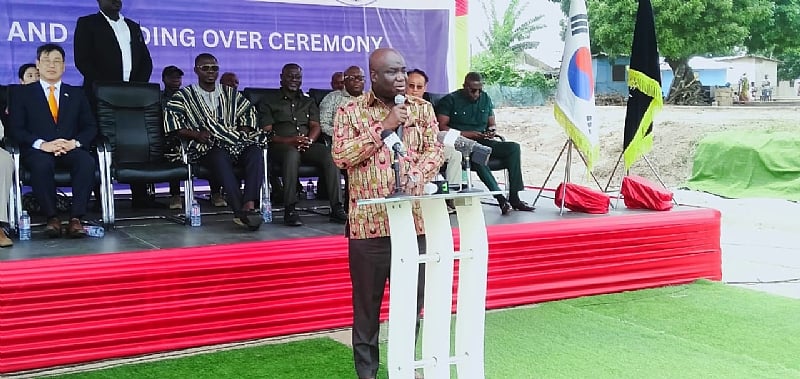Ghana’s agricultural landscape is poised for a significant transformation under the government’s ambitious irrigation rehabilitation and expansion program. Recognizing the untapped potential of the nation’s vast irrigable land resources, President John Dramani Mahama’s administration, spearheaded by the Ministry of Food and Agriculture, has embarked on a mission to revitalize existing irrigation infrastructure and develop new systems. This initiative aims to shift Ghana’s agricultural dependence from rain-fed practices to a more reliable and productive all-year-round farming model, ultimately bolstering food security, empowering farmers, and creating economic opportunities. The current utilization of only a fraction of the available irrigable land underscores the immense potential for growth and the urgency of this undertaking.
The rehabilitation program targets a comprehensive upgrade of existing irrigation schemes across the country. Key areas of focus include the Northern Region, where ten existing irrigation dams are slated for rehabilitation and an additional eight new dams are planned for construction. Other regions, including Volta, Ahafo, and Ashanti, are also earmarked for inclusion in this revitalization effort. This broad geographical scope reflects the government’s commitment to ensuring equitable access to improved irrigation facilities throughout the nation, maximizing the potential for increased agricultural output and fostering regional development.
Beyond the rehabilitation of existing dams, the government’s plan encompasses the development of new irrigation infrastructure, expanding the reach of controlled water supply to previously underserved agricultural areas. This expansion will facilitate the cultivation of larger tracts of land, enabling increased crop production and diversification. Coupled with the rehabilitation efforts, this expansion represents a comprehensive approach to water resource management for agriculture, aiming to create a robust and resilient agricultural sector capable of meeting the nation’s food needs and contributing to economic growth.
A crucial element of the government’s agricultural transformation plan is the integration of modern technology. Recognizing the importance of efficient and sustainable farming practices, the program includes the construction of 250 solar-powered boreholes. These boreholes will provide a reliable and environmentally friendly source of water for farmers, particularly those engaged in vegetable production. This focus on sustainable technology not only addresses immediate irrigation needs but also contributes to long-term environmental sustainability, promoting responsible resource management and mitigating the impacts of climate change.
The emphasis on empowering specific demographics, such as youth and women involved in agriculture, is another significant aspect of the government’s strategy. By providing targeted support and resources to these groups, the program aims to foster inclusivity within the agricultural sector. Equipping these farmers with the necessary infrastructure, training, and skills will not only enhance their productivity but also empower them economically, contributing to poverty reduction and fostering a more equitable distribution of opportunities within the agricultural sector.
International collaboration plays a critical role in the realization of Ghana’s agricultural vision. The Korean International Cooperation Agency (KOICA) has expressed its commitment to supporting Ghana’s agricultural development through various forms of assistance, including knowledge sharing, technical expertise, and financial resources. This partnership highlights the importance of international cooperation in achieving sustainable development goals, particularly in the agricultural sector. KOICA’s involvement not only strengthens Ghana’s capacity to implement its ambitious agricultural programs but also fosters a collaborative approach to addressing global food security challenges. The emphasis on training and skill development, facilitated through this partnership, will further empower Ghanaian farmers, equipping them with the knowledge and tools necessary to adopt modern, scientific farming techniques and maximize their yields, contributing to both individual prosperity and national food security.


